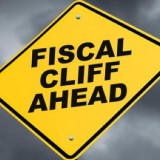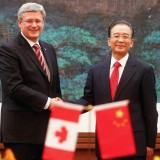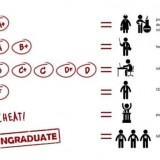“For the right price, anything is for sale” -Anthony Lambert, President and CEO of a Canadian arm of Chinese state-owned Sinopec, known as Sinopec Daylight Energy
Canadians are seeing red this week after a series of announcements reinforce concerns about the loss of Canadian resources and sovereignty.
The focus has been the Alberta Tar Sands, but natural gas plays are also in the mix. Four days after Stephen Harper boldly stated that the CNOOC/Nexen and Petronas/Progress takeovers marked the “end of a trend and not the beginning of one,” one of Canada’s largest oil and gas companies, Encana, announced a joint venture in a 4-plus billion dollar gas play in which PetroChina will have a 49.9 percent stake. A “minority” position such as this is seemingly an end-run on the “new,” yet unexplained criteria dictating the level of Chinese/foreign investment the Harper government would support.
CNOOC’s Nexen bid was a full takeover of a Canadian-based company with international holdings, however its mainstay is the Alberta oil patch and part of that takeover also includes a percentage of Syncrude. These companies have enjoyed years of Canadian taxpayer subsidies and support to make them profitable. The benefits of that multibillion dollar effort will now accrue to a Chinese “SOE”, or State Owned Enterprise, turning Canada into what the Alberta Federation of Labour’s recent detailed report describes as “China’s Gas Tank”.
Those supportive of foreign SOE investment in Canadian resource plays dismiss the concerns raised as unwarranted paranoia. A sort of “Reds under the bed” fear being mocked by folks like Bob Rae, outgoing liberal leader and supporter of Chinese investment. But this dismissive attitude shared by the supporters of such investment neglects the heart of the matter.
Joseph Stalin once said, “When we hang the capitalists they will sell us the rope we use,” which is in keeping with the Sinopec President’s view that “anything is for sale at the right price.” This point is pivotal. Chinese investment by SOE’s seems counter-intuitive to a “free enterprise” approach – a central plank in the ideologically driven agenda of Stephen Harper. So why does he abandon such principles along with his base and run far from the centre over to what many view as the extreme left?
It is largely due to the fact that SOEs have deep pockets and are paying real, serious, above-market premiums to snatch up Canadian oil and gas assets, which is enriching longstanding players in the patch and their investors. And it is true that they are doing so because there is profit to be made, and not simply in owning Canadian resources raw and sending them home to China.
But it’s really about the age-old geopolitical game of control over the world’s resources, exploiting them elsewhere while leaving one’s own in the ground, as United States has historically done (however, now you will note that they too are falling prey to exploitation and export of their “Homeland” resources.) All of which will fuel the growth of China’s economy into what people are proclaiming will be the world’s largest economy in as soon as a decade or two.
China has a stake in many nations around the globe and the forces that historically “nation build” are at work once again in boosting China to the forefront of the world, unfortunately their model has even less trickle down to the Chinese people, as they often live in squalor and cities that could house millions remain empty.
To accommodate this agenda the Harper government has created a very attractive investment “climate” in the Tar Sands. A much-reduced royalty rate, heavy subsidies, a gutted environmental regime, paralyzed environmental assessment processes. All this while accruing decision making to the top. Cabinet (read Chairman Harper) will decide cross-border pipelines, terms of trade and investment deals, criteria for foreign investment, and he has taken measures to lock in the new legislative framework dictating resource development and exploitation for decades to come.
During the minority reign of the Harper administration, he oversaw the single largest divestiture of a “public asset” in our nation’s history when he constructed the offloading and privatization of Petro Canada. The result was a gift to industry, a huge loss to Canadian taxpayers and it closed the public window we had on this industry from well to pump. Which is why Harper was so precise with his language when he approved the CNOOC/Nexen and Petronas/Progress takeovers.
Indeed, the first thing out of his mouth at the press conference announcing the approvals was, “To be blunt, Canadians have not spent years reducing the ownership of sectors of the economy by our own governments, only to see them bought and controlled by foreign governments instead.” However that is precisely what is occurring, no matter how you slice it.
But Harper ignores this reality and doubles down on his bold misrepresentation of the facts, “It is not an outcome any responsible government of Canada could ever allow to happen. We certainly will not.” And they should not, Harper realizes its not what Canadians want, which is why he takes to the mike and says these things. So why does he do the exact opposite?
Foreign investment is already a serious issue in the oil and gas industry in Canada. Forest Ethics recently released a brief explaining how Canada’s major oil and gas players are on average 71% “foreign owned.” In fact, the major players in the patch are almost entirely foreign owned; it is only the Canadian-based companies that bring that percentage down from fully foreign ownership. But even those Canadian-based companies are owned by foreign interests in the majority. All of this equals an exodus of cash from the country, only outdone by the flow of oil, gas and other raw resources.
If Canadian companies cannot find the money to invest in the oil and gas patch, despite outgoing Bank of Canada Governor Mark Carney’s criticism that corporate Canada is sitting on over 600 billion dollars of “dead money” and Canadian “SOEs” needed to be sliced, diced, demonized and sold off, why are Chinese SOEs all the rage?
Jim Stanford, a highly respected, independent-minded Canadian economist, suggests the notion that Canada cannot capitalize its own resources and must therefore rely on foreign investment is balderdash. Moreover, the Conservatives still boast that Canada and its banking industry are a pillar of stability in a sea of insecurity and crashing economies. All of which runs counter to the oft-repeated cliché that “we need” this foreign investment, and is instead looking much like a foreign takeover of not only our resources but our sovereignty.
This is where the Canada-China Foreign Investment Promotion and Protection Act (FIPA) comes in. This government continues to claim that somehow FIPA is good for Canadian investment in China, yet there is no evidence of that. Preeminent Canadian economist Diane Francis, a polar opposite to Jim Stanford, would probably agree with him on this one, as she has suggested the FIPA should be ripped up. Meanwhile, even Canada-US free trade architect Brian Mulroney states that we are still at least a decade away from free trade with China.
So why FIPA? Why now? In corporate parlance this amounts to a “Friendly Takeover”, as both entities agree there are “synergies” with the syncrude and are supportive of the entire notion, therefore it’s not a hostile takeover.
In promoting this deal, the Harperites will tell you that we have dozens of other FIPAs and this one is simply just another one. However that too is very misleading. The others are largely with countries where Canadian-based companies, typically mining companies, are operating.
Once again, these companies maybe Canadian-based, but they are largely foreign-owned, and they base themselves in Canada because our legislative environment is accommodating to their agenda. Canada is to mining what Switzerland is to banking and the FIPAs we negotiated are in most cases as draconian for the less-developed nations as the Chinese FIPA is for us.
These FIPAs guarantee the exploitation of mineral rights in less developed countries, for Canadian-based mining companies, and ensure the governments are removed from the equation, unable to protect the environment or increase royalty rates. In fact, the governments are reduced to cheerleaders on the “promotion” side of these agreements. Any move to regain sovereignty, charge respectable royalties, protect the environment or impose any restrictions on unbridled exploitation is met with severe financial penalties, meted out by a new corporate judiciary established by these agreements, which works in secret and is entirely profit-motivated.
This is exactly what is happening to Canada with the Chinese FIPA.
However, a huge push back has occurred and Harper seems frozen in his tracks on this one.
After having restructured the very fabric of the nation with two omnibus bills – the largest we have ever seen – he has still not ratified the agreement. Ironically, Omnibus bills have been used very sparingly in history. In 1971 Liberals used the practice to establish the “Department of the Environment,” and then again in 1982 to establish Trudeau’s infamous “National Energy Program.” The Conservatives fought it then and had the bill divided into eight different sections. On the other hand, Conservative governments have used the practice more. They used it once to enact NAFTA, and now twice since Harper obtained his majority – for the opposite purpose of omnibus bills of old, which established our internationally-renowned environmental practices and the nation-building, sovereignty-securing laws of Trudeau’s NEP.
As we pointed out in painstaking detail here at the Common Sense Canadian, the recent Omnibus bills run contrary to the FIPA treaty process and, in our opinion, render it null and void. This could be at the very heart of the delays we are now experiencing. There were many petitions and expressions of outrage, however, the argument we forwarded was indisputable and has put the Harper Cabinet in a box. And now we have an opportunity to follow up and here is why.
If FIPA is ratified, it will mark the end of Canadian sovereignty in the oil and gas patch. It will also ensure that China becomes the major driver of activity in both oil and gas. The terms are so favourable for “Chinese investment” that it will force partnering with them on resource plays as evidenced in the recent PetroChina/Encana joint venture announcement. The FIPA offers such attractive terms that partnering with any other private companies or SOEs would put one at a disadvantage. This essentially makes the draconian FIPA terms the new de facto law of the land and not simply a bilateral investment agreement. Can you imagine the Harper government or any other government making laws – or restoring those recently stripped away – which apply to everyone but Chinese companies?
I raised these points and many others in my submission to the FIPA environmental assessment process and we encouraged you to do the same. The campaign was picked up by savvy internet politicos who run Leadnow and similar organizations. The end result was thousands of submissions to various levels of government on this issue, on top of the 100 thousand-plus petition signatures these groups garnered against FIPA. Others chimed in as well, and the result so far has been positive.
However there is still an opportunity to communicate once again our adamant disapproval of the FIPA agreement. It is important we do so in order to send a message loud and clear that we do not approve locking in subsidies, much-reduced royalty rates, much-diminished environmental processes and reduced protection for over thirty years – an eternity in terms of the timeline required to liquidate our oil and gas resources.
It may have made sense in the beginning to give the resource away and subsidize its growth, in an effort to get a capital-intensive exercise on a solid economic footing, but at a time where balanced budgets elude us, debt is racking up at any amazing pace and our standard of living is eroding, we cannot afford to allow these conditions to persist so long into the future. It will spell our demise.
So take the time and visit this link related to the Chinese FIPA and share these concerns with them. At this point the Minister of Industry has stated uncertainty around the ratification of FIPA, therefore we need to continue to apply pressure in order to at the very least delay, if not entirely avoid, ratification of this treaty. Our future and our kids depend on it.
You can visit this link and copy and paste the letter there, as it is still relevant and they invite more comments to that final FIPA Environmental Assessment, despite the closing of the public window for submissions.
Comments on this report may be sent by email, mail or fax to:
Environmental Assessments of Trade Agreements
Trade Agreements and NAFTA Secretariat
Foreign Affairs and International Trade Canada
125 Sussex Drive, Ottawa, Ontario K1A 0G2
Fax: (613) 992-9392
E-mail: EAconsultationsEE@international.gc.ca









